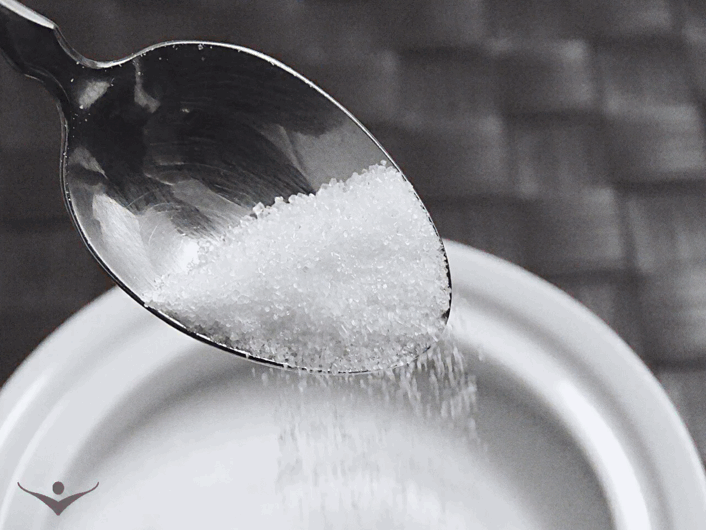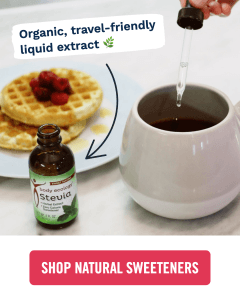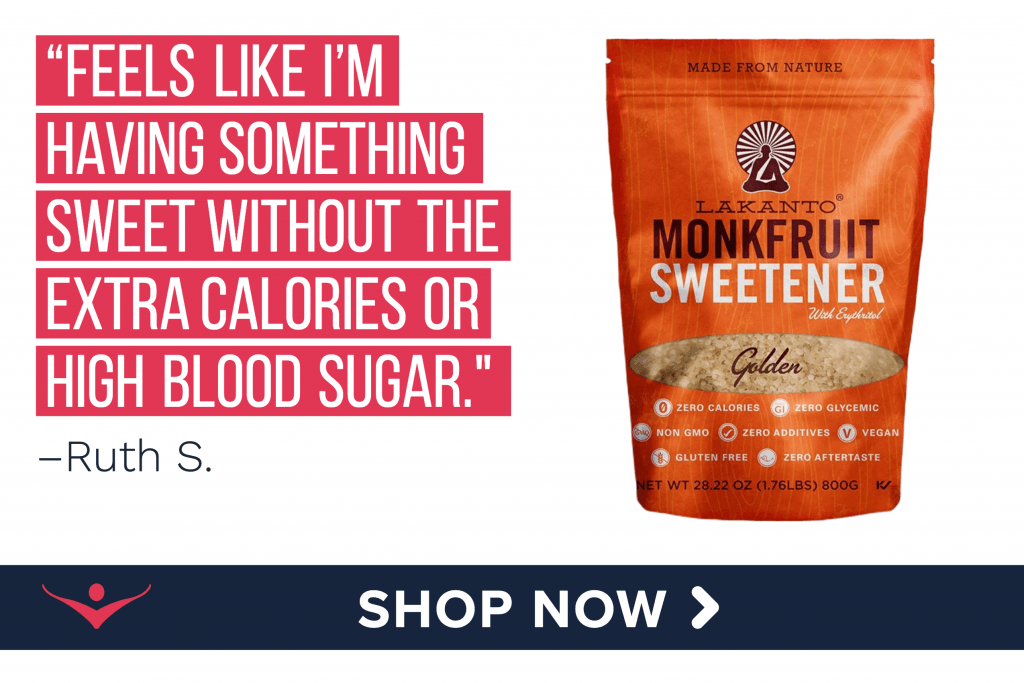Fake Sweeteners: The Good, The Bad & The Ugly

Using artificial sweeteners to cut back on sugar? The truth is – you might be better off with the real thing. Scroll down to find out how the majority of fake sugar substitutes out there might actually have a negative impact on your metabolism and overall gut health.
Will all zero-calorie sweeteners help me lose weight?
Sadly, no. While you might use artificial sweeteners to control your weight and curb sugar cravings, the opposite could be happening. By consuming fake sweeteners, your body becomes more sugar intolerant, leading to increased blood sugar levels and greater chances of overeating (yikes!).
Aside from digestion, your gut is a hub for your immune system and metabolism. Within your gut are hardworking microbes that play a key role in. These friendly bacteria are the “good guys” that keep disease-causing bugs in check and help our bodies digest glucose and other sugars. Along with sugar intolerance, studies have found that common synthetic sweeteners might also trigger the growth of unhealthy bacteria in the gut linked to obesity and metabolic disease.
Is there proof that fake sweeteners can increase blood sugar?
Today, doctors and scientists alike stress the importance of a well-balanced gut. Studies continually show that having beneficial intestinal bacteria (or flora) can not only improve digestion and help prevent obesity, but may also help prevent some cancers and autoimmune diseases. The reverse is true when an overgrowth of harmful bacteria is present, which has been linked to the following:
- Weight gain
- Metabolic Disease
- Heart disease
- High blood pressure, and diabetes 1
So, what’s the trick to keeping the good bacteria around? The answer relies almost exclusively on our diets – which is where fake sweeteners come in.
In a recent study, researchers inoculated mice with either “normal” intestinal bacteria or the microbes from mice fed artificial sweeteners to determine whether the use of sweeteners was directly related to poor blood sugar control. As a result, they found that the microbe exposed to fake sweeteners was indeed disrupting blood sugar levels and repelling healthy bacteria in the gut. In humans, the results were similar. Healthy folks who do not usually take artificial sweeteners were given saccharin for one week. After only one week, most of the volunteers had a poor blood sugar response and saw a shift in their inner ecosystem.
Yikes. So what’s the solution? Keep scrolling to learn more.
Are there any healthy sugar substitutes out there?
Thankfully, yes. First and foremost, it is important to note that there are two types of sugar substitutes: synthetic sweeteners and organic (or natural) sweeteners. Both can be used to add sweetness to food and drinks without the calories from sugar. However, their effects on the body are not the same.
Research has found that sprinkling artificial sweeteners in coffee or on cereal often backfires, increasing the body’s cravings for sweets and overall intake – resulting in potential weight gain and instability in the digestive tract.
While fake sugars may destroy healthy bacteria, natural alternatives such as Organic Stevia and Lakanto Monk Fruit sweetener are an excellent option to sweeten food or drinks while supporting your inner ecosystem. And if you don’t believe us, consider the fact that Stevia and Monk Fruit are the only two sweeteners on the market with GRAS (Generally Recognized as Safe) status from the FDA. 2
To receive this certification, the FDA requires peer-reviewed tests and research to gauge an ingredient’s safety when used in suggested doses or otherwise. Other sugar substitutes that fail to meet GRAS criteria include saccharine (i.e. Sweet’N Low), aspartame (i.e. Equal), and sucralose (i.e. Splenda). Instead, these synthetic sugars are classified as “food additives” without the proven safety qualifications to be used as common ingredients.
In addition to passing the safety test, both Stevia and Monk Fruit have zero calories, zero carbohydrates, and zero glycemic index. Still not convinced? Unlike other fake sweeteners, Stevia and Monk Fruit have not been identified as cancer-causing agents. In fact, some research points to the contrary – that antioxidants in stevia plants could actually play a role in preventing cancer.3 Likewise, animal research suggests that mogrosides in Monk Fruit plants may help control blood sugar levels.4
Can you heal your gut from sugar intolerance?
Let’s face it – many of us grab those little pink and blue packets of artificial sugar in the airport or Starbucks counter without giving it a second thought. The good news is, with more and more research emerging about the dangers of adding fake sweeteners to your diet, big brands are beginning to drop synthetic sugars in favor of all-natural substitutes like our favorites, Stevia and Monk Fruit.
Looking for ways to manage your blood sugar and encourage good bacteria growth? Here are two basic dietary changes to apply at home:
Eat whole grain-like seeds such as quinoa, buckwheat, millet, and amaranth. The emphasis here is on whole. Research has found that whole grains boost metabolism and give your inner ecosystem the right kind of nutrients that it needs to thrive.5 Specifically, this means less inflammation and more control over blood sugar. While it’s not likely you’ll come across refined grain-like seeds, we recommend that you prepare all grain-like seeds at home, where you can properly soak (and even ferment them) yourself. When using unhulled buckwheat, be sure to throw out the soaking liquid because it contains anti-nutrients that bind to minerals and protein.
Incorporate a therapeutic prebiotic, such as insulin from the chicory plant or Jerusalem artichoke. Grain-like seeds are a prebiotic, meaning they feed healthy intestinal microbes. However, sometimes your inner ecosystem needs a little extra boost outside of food — this means therapeutic probiotics and prebiotics. Animal studies have found that an inulin-rich prebiotic is able to bump up weight loss, while the combination of a probiotic and a prebiotic can help you manage blood sugar. 6
REFERENCES
- 1. Cox, L. M., & Blaser, M. J. (2013). Pathways in microbe-induced obesity. Cell Metabolism, 17(6), 883-894
- 2. U.S. Food and Drug Administration. (2018). Additional Information about High-Intensity Sweeteners. [online] Available at: https://www.fda.gov/food/food-additives-petitions/additional-information-about-high-intensity-sweeteners-permitted-use-food-united-states.
- Ukiya, Motohiko, et al. “Cytotoxic and Apoptosis‐Inducing Activities of Steviol and Isosteviol Derivatives against Human Cancer Cell Lines.” Wiley Online Library, John Wiley & Sons, Ltd, 18 Feb. 2013, https://onlinelibrary.wiley.com/doi/abs/10.1002/cbdv.201200406.
- Zhou, Ying, et al. “Insulin Secretion Stimulating Effects of Mogroside V and Fruit Extract of Luo Han Kuo (Siraitia Grosvenori Swingle) Fruit Extract.” Yao Xue Xue Bao = Acta Pharmaceutica Sinica, U.S. National Library of Medicine, Nov. 2009, https://www.ncbi.nlm.nih.gov/pubmed/21351724.
- Martínez, I., Lattimer, J. M., Hubach, K. L., Case, J. A., Yang, J., Weber, C. G., … & Haub, M. D. (2013). Gut microbiome composition is linked to whole grain-induced immunological improvements. The ISME Journal, 7(2), 269-280
- Bomhof, M. R., Saha, D. C., Reid, D. T., Paul, H. A., & Reimer, R. A. (2014). Combined effects of oligofructose and Bifidobacterium animalis on gut microbiota and glycemia in obese rats. Obesity, 22(3), 763-771.










